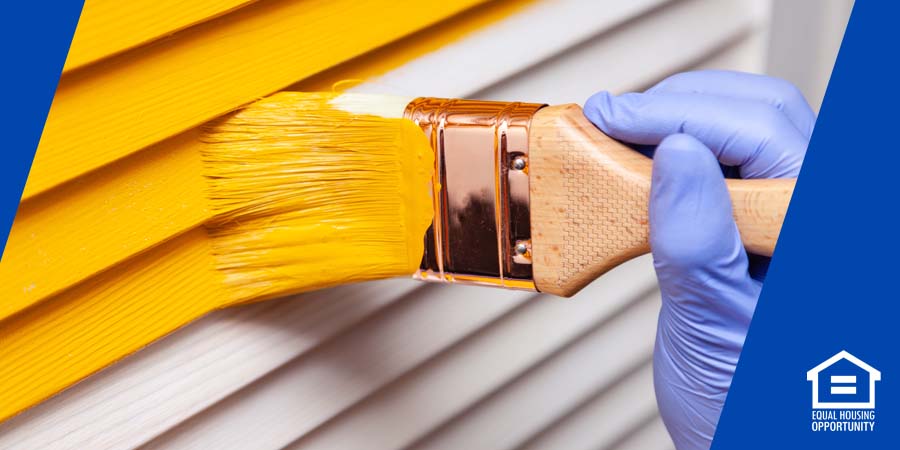Your house is one of your most valuable assets. Just as you build memories within the walls of your home, over time you also build equity. The amount of equity you have in your home can provide several positive impacts to your overall financial picture.
What is Home Equity?
Home equity value is simply the amount of financial ownership you have in your house. It is calculated by subtracting your remaining mortgage amount from your home’s current market value. When you reach full ownership of your home, your equity stake becomes 100%. As your equity value increases, your home becomes more of a financial asset to help you achieve your life’s goals.
How to Build Home Equity
There are two main ways to increase your equity: pay down your remaining mortgage balance or increase the value of your home. Most people utilize a combination of both for faster gains.
Ways To Decrease Your Mortgage Balance and Increase Equity
- Make at least one extra payment per year. Make 13 mortgage payments per year by paying half of your mortgage amount every other week. If that’s not feasible, divide your monthly payment amount by 12. Either pay that amount extra per month or save it and make a lump sum payment at the end of the year, effectively paying off your mortgage at a quicker pace.
- Dedicate any extra income to the principal amount of your mortgage. Even if you can’t afford to make one extra full mortgage payment per year, you can still make a dent in lowering the overall balance of your loan and simultaneously increase equity. Use any extra funds – like tax returns, inheritances, or bonuses – to pay down the principal amount.
- Refinance to a 15-year mortgage loan. Refinancing to a shorter loan term allows you to pay off your home and increase your equity at a faster rate. Your monthly payment will increase, but you’ll save money on interest charges over the life of your mortgage.
- Refinance at a lower rate. Your monthly mortgage payment will decrease with a lower interest rate. If you continue to pay the same amount, despite the minimum payment being less, you will inadvertently pay extra towards your mortgage and eliminate the debt faster.
Refinancing your home does not guarantee you’ll increase your equity. In fact, your equity could decrease if you include additional fees – like your closing costs – into the refinanced loan, or if you choose to trade equity for cash in what’s known as a cash-out refinance.
Ways To Increase the Value of Your Home and Increase Equity
- Let your home’s value increase over time. Your equity will naturally rise as you make mortgage payments, plus it’s possible your home will appreciate as property values rise. If you’re willing to stay put, you can increase your equity without paying anything extra above your normal mortgage payments.
- Increase your home’s efficiency. Making energy efficient improvements can provide long-term savings on utility bills. Also, you may be eligible for federal, state, or city tax credits and rebates by making those upgrades to your home. Allocate those saved dollars towards your mortgage to pay it down faster and increase your equity stake. Or, if you choose to sell your home, highlighting these upgrades for potential buyers could also net you more profit. According to Freddie Mac, energy efficiency-rated homes sell for 2.7% more than unrated homes.
- Complete home maintenance and renovations. Your equity stake depends on the market value of your home, often determined through an appraisal. Along with regular maintenance, build home equity through home improvements that boost curb appeal and increase appraisal value. From smaller updates like new mulch or fresh paint to larger projects like kitchen remodels or additions, stay within your budget. Overextending yourself financially to complete an upgrade isn’t worth it.
Why Build Home Equity?
Having equity in your home opens doors to opportunity, regardless of plans to stay or sell.
A higher equity stake means higher profits when you sell your home. If you own your home outright, with a 100% equity stake, you will pocket more profit from the sale than if you only had a 10% equity stake.
And if you plan to stay in your home, you have opportunities to borrow against the value of your equity through a Home Equity Loan or Home Equity Line of Credit (HELOC). Here are 5 reasons to get a HELOC that can help you build wealth or further increase your equity.
What’s the Difference Between a HELOC and a Home Equity Loan?
Both of these loan types allow you to borrow against your home’s equity, but there are key differences between them. A home equity loan is dispersed as a lump sum and payments are at a fixed rate, meaning you’ll be responsible for paying back the full loan amount in equal monthly installments.
Meanwhile, a HELOC allows you to draw upon an available amount as needed. Your monthly payments can fluctuate because your interest rate is tied to current market conditions.
When trying to build equity in your home, TwinStar Credit Union can help you navigate the terrain and forge a path that makes sense for your specific needs. Our home loan experts are ready to support you whether you want to refinance your existing mortgage or utilize your home’s equity for building wealth. Visit us online to meet our team and request a free consultation today.
All loans subject to credit approval. Rates, terms and conditions are subject to change and may vary based on creditworthiness, qualifications and collateral conditions. Mortgaged property must be located in Washington or Oregon state. Certain restrictions may apply. Contact a Home Equity or Mortgage Loan Officer for more details. Equal housing opportunity lender. NMLS #530610
